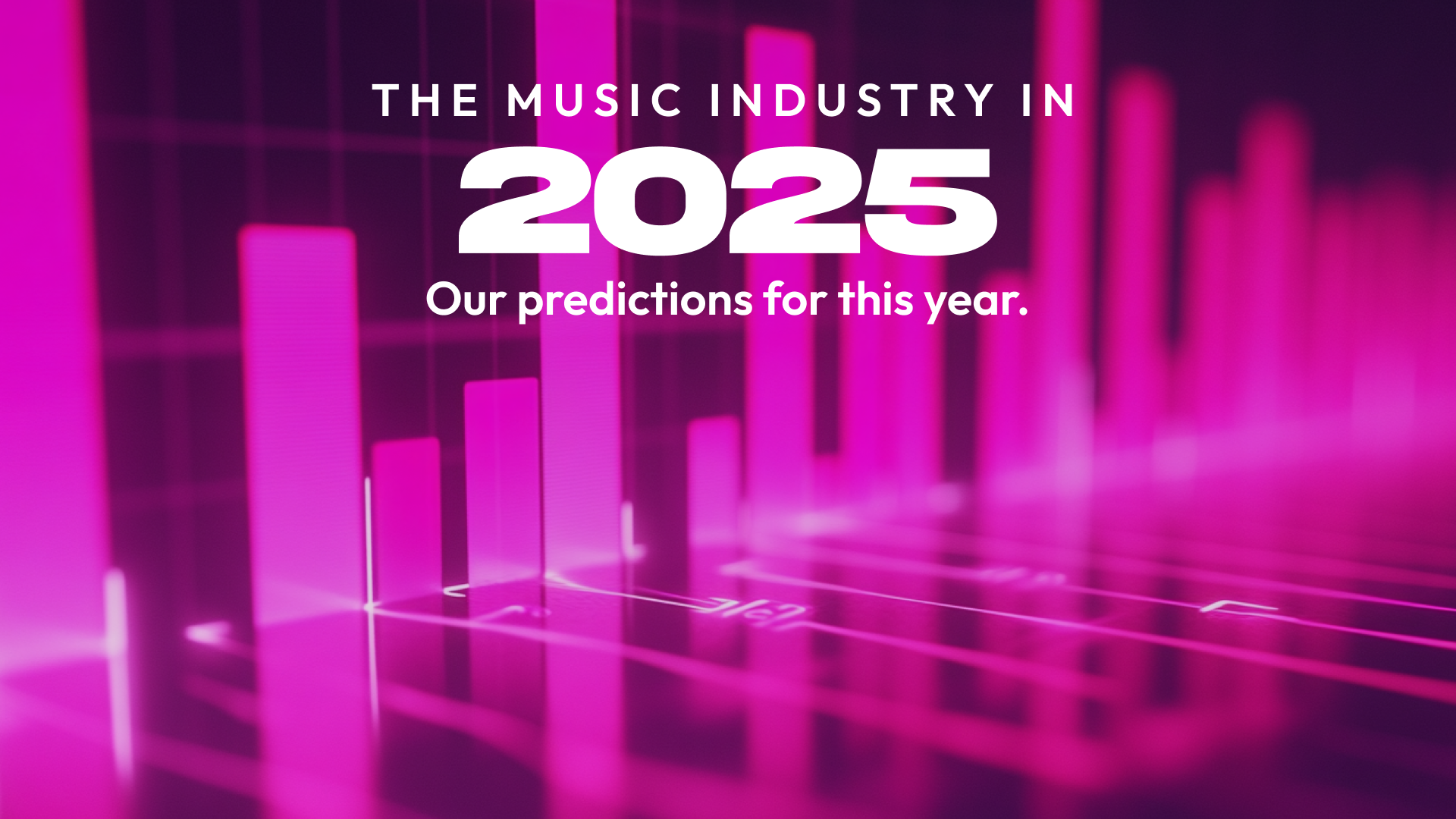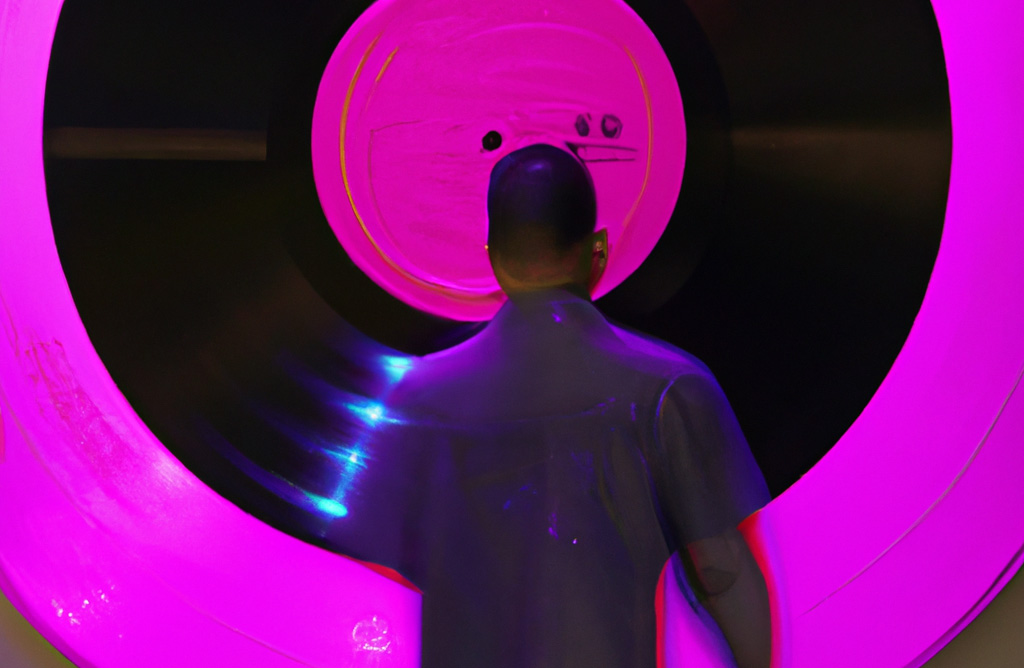AmplifyWorld’s Music Industry Predictions for 2025
We’re only a few weeks into 2025, and it’s safe to say that there have been unequivocal shifts within the music industry. From the TikTok saga in the U.S. to wildfires raging across L.A. – one of the world’s densest music hubs – the debate on AI’s impact on music and the wider creative industries reaching a boiling point, and Liz Pelly’s exposé on Spotify’s alleged Perfect Fit Content (PFC) programme, we wondered how some of the industry’s most important conversations will play out over the next couple of months. To understand the ins and outs of this thing we call the ‘music business’ vis-à-vis 2025, we reached out to some industry experts to give us their hot takes…
Music Industry Predictions for 2025
Nikki Camilleri
Nikki is an award-winning, London-based music industry executive who has worked for Warner Music, Believe, Glastonbury, and more. She founded Mana – a consultancy in strategy, artist development, partnerships, and talks – and was featured on the Forbes 30 Under 30 list for this work.
I think we will see a greater uptake of direct-to-fan tools as artists and their teams try to build stronger fan relationships, recognising the value that superfans hold for both their growth and revenue. Looking at the average value artists receive from a superfan versus a passive fan, we can note that superfans generate anywhere from 10 to 100 times more revenue over their lifespan. This means that finding and cultivating those superfan relationships will be crucial to building a thriving fan community in 2025 and beyond.
Owning your data will also become more of a priority for artists and their teams. To date, artists have always been at the mercy of a third party – be it a label or, more recently, social media – in order to reach and engage with their fans.
While social media will remain a useful marketing tool for music discovery, funnelling fans from social platforms into an artist’s own ecosystem – allowing for direct communication – will prove valuable. This will ensure that artists retain control of fan communication regardless of changes to third-party platforms, while also enabling them to make strategic decisions based on their own fan data.
Hanna Kahlert
Hanna is an analyst at MIDiA Research, a research and consulting company specialising in digital entertainment. Her key areas of interest are cross-entertainment audience behaviour, the creator economy, and social platforms.
The creator economy is a driving force behind music, with new artists increasingly turning their attentions mainly – if not exclusively – to social platforms over streaming. Social platforms are eating up more of the audience’s time and attention, and offer artists the ability to directly build and engage with their fanbases. This is causing – and will visibly continue to cause – a bifurcation in the industry between the traditional industry focusing on packaging and selling music, and the new one, which views music as an interactive, participative activity for audiences and creators alike.
The value of creator IP has never been higher; the value of their music, however, never more difficult to monetise. On top of this, changing regulations will cause turbulence among the established social platforms.
In 2025 we will start to see serious audience fragmentation, both on apps via algorithm, and between them, as audiences and artists alike look for authentic, consistent, and less cluttered ways to engage. Fandom has always been more important than reach, but the growing gap between social media metrics and actual fan follow-through will push creators to find new ways of engaging their audiences.
Kameron Addington-Dzenyo
Kameron is an experienced A&R and artist manager with a proven track record of signing and developing acts across multiple genres and markets.
2025 will be a pivotal year for the music industry. It currently feels like we’re in a transitional period where we are leaving behind many industry norms and entering an era that prioritises community, data and technology over traditional music industry norms and cultural gatekeeping.
Two key trends I expect to see during this period are the following:
Emerging artists’ success will largely depend on superfans and community building instead of the more traditional routes to mainstream success.
The influence and power of tech companies within the music industry will continue to grow.
Sam Bates
AmplifyWorld’s Chief Marketing Officer & Co-founder
AI will have an even bigger influence on the industry, offering even more tools for production, marketing, and promotion. It’s likely to disrupt formulaic genres like library music and some elements of EDM, but it won’t replace human-made music as a whole. As a marketeer – and most importantly a music obsessive – I know that the human story behind the music is as important as the actual music, so it’s likely a long time before computers replace humans as the world’s top musicians.
Off-social, gatekept music events and parties will make a comeback, becoming a trend within the coolest music communities. Everyone is relentlessly filming content for social media to promote their party, artist, DJ, etc. (I’m as guilty of this as anyone). However, I think there will be a cool counter culture that gatekeeps music events from social media and encourages people to be much more in the moment, and revels in a way of experiencing music from the pre-social media era. I can also see a big backlash against the ever-escalating ticket prices and monopolies around large concerts. Perhaps the promised government interventions here in the UK will help change this.
TikTok is here to stay, despite the initial ban, while the over-saturation of social media will lead to the rise of fan engagement platforms that allow artists to connect directly with their superfans, like the one we are building here at AmplifyWorld (maybe I am biased!).






